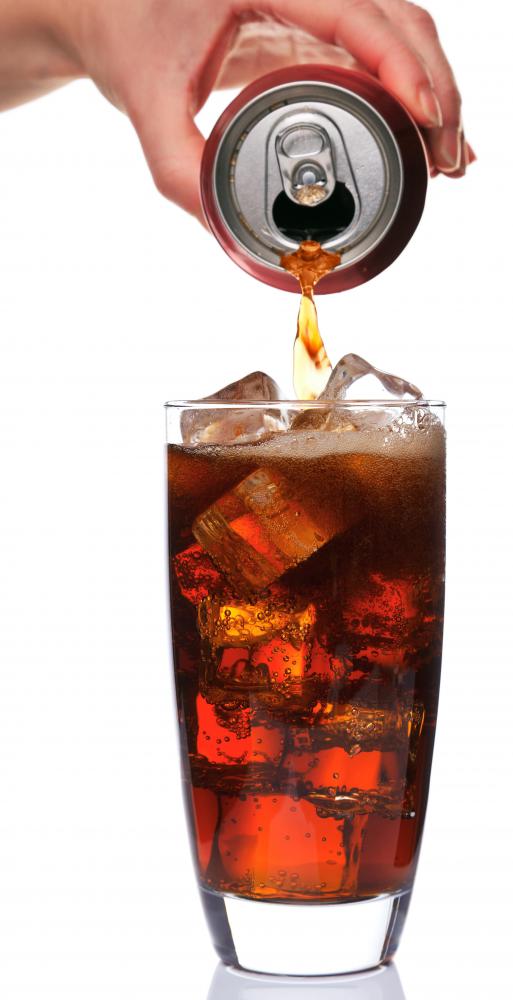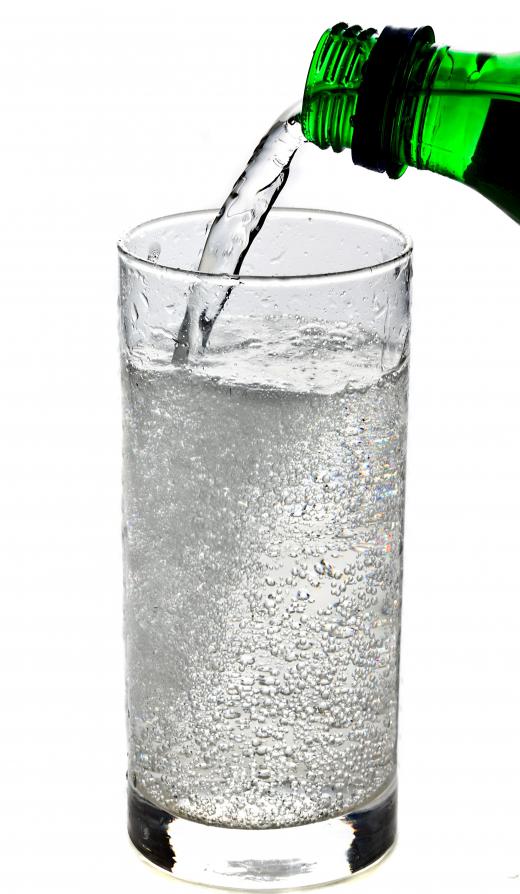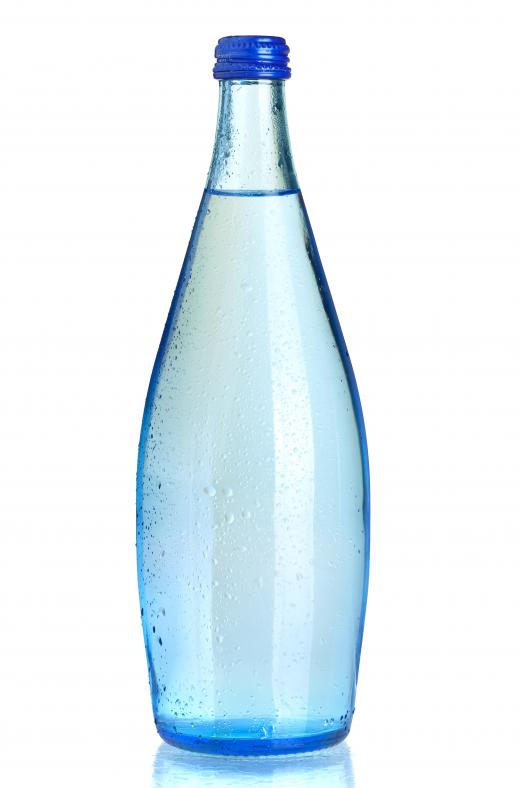What is Carbonation?
 Mary McMahon
Mary McMahon
Carbonation is a phenomenon in which carbon dioxide gas is suspended in water, creating small bubbles. It can occur both naturally and artificially, as a result of the introduction of carbon dioxide to a liquid. This phenomenon is what makes soft drinks bubbly and fizzy, although the fizzy sensation is actually not caused by the bubbles themselves, but rather by the chemicals which make the bubbles.
There are a number of reasons for people to use carbonation in the preparation of beverages. One thing about carbonation is that it drives out the oxygen, which can make a beverage shelf stable as long as it is sealed, keeping microbes which need oxygen to survive out. Many people have also noted that carbonation adds to flavor, as seen when someone drinks “flat” soda which has been opened and left out, allowing the carbon dioxide to escape. The soda tends to taste boring and less dynamic without carbonation.

Historically, carbonation occurred naturally in many fermented beverages like beer, because carbon dioxide is a waste product produced by the yeasts which are an integral part of the fermentation process. Carbonation is also the process behind the holes which appear in cheese and bread, incidentally. The amount of carbonation which occurs can be controlled, to some extent, and sometimes more is added by modern breweries. The carbonation explains why beer needs to be kept under pressure, so that the gas will not escape.

The effects of consuming carbonated drinks on the body can vary. Much of the carbon dioxide actually escapes before it enters the digestive tract, in the form of burps. CO2 which manages to reach the intestines is quickly absorbed, and as a result, can promote quick absorption of other things in the digestive tract as well. This is one reason fizzy drinks appear to “go to the head” so quickly, because the CO2 actually promotes the absorption of the alcohol. The carbon dioxide absorbed by the body is eventually expressed by the lungs.

Some people have claimed that consuming carbonated drinks will have deleterious health effects. Given that humans have been drinking carbonated fluids for a very long time, these claims should be taken with a grain of salt. In fact, consumption of drinks with carbonation is sometimes recommended for people who are feeling nauseous, illustrating that it can have some benefits, and drinking carbonated water while traveling can protect against some microbes found in water, since they cannot survive in properly carbonated water.
AS FEATURED ON:
AS FEATURED ON:
















Discussion Comments
I just started to drink Perrier water and the different flavors and it's great. At first I did not like it when it was offered to me at a birthday party.
Then I went to Florida and bought a bottle and I loved it ever since then which have been one month now. I replaced my Pepsi and coke with the Perrier water.
What makes carbonated beverage containers sometimes "explode" when opened?
Thank you. This information was very helpful. I am doing a science fair project on carbonation levels of soda and this really helped.
I wonder why they put carbonation in soda?
Really good information.
can someone explain what is a carbonated drink, how it's made and the chemistry behind it?
The pipes in most of Europe are older and considered by many not clean for drinking without filtering. I hear that is why many restaurants will not serve tap water to people.
@Denha, that is probably because many Europeans agree with the idea that carbonation adds nutrition to water and other beverages. I personally don't like the idea idea of forced carbonation, at least not in the water that I drink, but it is one of the many ways in which even the simplest food and drink are different in Europe from the way they are in the United States.
I have been living in Europe for the past few months, and it is almost impossible to find non-carbonated water at restaurants and pubs. Most of the time, it is more expensive than carbonated, and they will not serve customers tap water unless you ask specifically; sometimes they even charge for that, thought not as much as for the small bottled water that is listed on the menu.
Post your comments